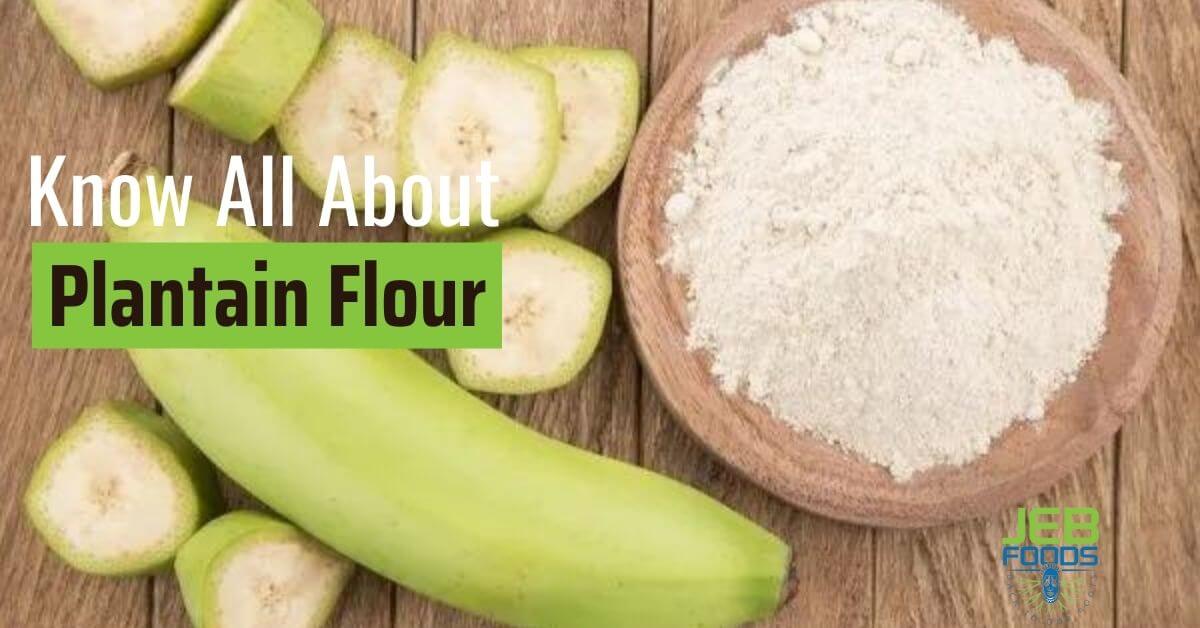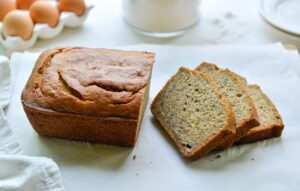Let’s see what you can substitute for cassava flour, I will tell you a few of such flours.
Cassava flour has grown in popularity in recent years, known as gluten-free, grain-free, and a healthy wheat alternative.
See the most frequently asked questions about cassava flour
Most people know that cassava flour may be used as a thickening, a baking ingredient, and kitchen. Because it is gluten-free, it is an excellent choice for those who may have stomach troubles.
However, this flour may be unavailable on the market, and in such a case, you will need a healthy alternative.
But before you do this, I recommend you check out grain-free, gluten-free cassava flour here. Jeb Foods had never run out of my favorite cassava flour.
Because of the flexibility and simplicity in using cassava flour, the flour best for substituting cassava flour needs to have the same properties and useability.
There are misconceptions about flours, and I will only consider gluten-free flours, just like cassava flour
See why you should be baking with gluten-free flour.

Quick Overview Of Cassava Flour
Table of Contents
ToggleHowever, before we get into whether cassava flour alternative, we need first to understand everything there is to know about cassava flour.
Cassava flour is a sort of flour made from the cassava plant, as its name indicates. Cassava flour has gained widespread acceptance despite being a product initially from South America that goes by numerous names (such as “Brazilian arrowroot” and “Yuca”).
See all about cassava flour overview and its history
Cassava has become an essential element of the daily diet in many third-world nations, where this flour is especially popular.
Even while cassava flour may be sweet, it is often bland in flavor. It primarily consists of water, protein, and glucose. Because it’s gluten-free, though, many people find it irresistible.
Cassava flour is ideal for those following a gluten-free, paleo, or candida diet. It is used in different type of dishes. To begin, you may make cassava flour tortillas or flatbreads.
You may also create gluten-free pancakes with cassava flour. Let’s also see: Can Cassava flour replace wheat flour
Cassava Flour Substitutes
Cassava flour is an essential component for persons who are gluten intolerant or have wheat or grain allergies. These properties will be similar to some of these cassava flour substitutes.
Cassava flour substitutes are arrowroot, tapioca flour, almond flour, coconut flour, chickpea flour, or rice flour, among others. Let us see details and how to use these flours as a substitute.
Let’s go into details.
More Interest: A guide to gluten-free mix
Almond Flour
This is one of the best cassava flour alternatives. You may replace it with this in a 1:1 ratio.
Almond flour is fully gluten-free and has a very low carbohydrate content. It’s produced from skinless ground almonds and works well as a flour substitute in both savory and sweet applications.
It is fine and tasty and may be used everywhere you want almonds’ taste and nutritional advantages without the crunch, such as smoothies, hot cereals, and bread crumb coatings.
Almond flour is moist, flavorful, nutritious, and easy to use! The finer the ground, the better the results when baking using almond flour.
Arrowroot Flour
When it comes to Arrowroot flour, it isn’t the most straightforward ingredient. Unlike tapioca, arrowroot is not a member of the same plant family.
Arrowroot flour is more of a thickener with cornstarch-like properties. It is also gluten-free when compared to cassava flour.
This works best as a cassava flour alternative when combined with other flours.
It is easy to digest, so it’s ideal if you have digestive issues, and as a thickening agent, arrowroot is the most often used ingredient.
Aside from being readily accessible, it’s also an excellent alternative for things like cassava flour or cornstarch.
Arrowroot can be found almost anyplace, so you don’t need to worry about it. When cassava flour is in short supply, use arrowroot instead and begin cooking.
It may also be used for baking and in the dredging of dehydrated foods. As a rule of thumb, when using arrowroot in baking, it’s better to combine it with other tastes.
However, if you’re creating anything that has to be crisp, such as biscuits or cookies, you may use it on its own.
Potato Starch
If you’re searching for a gluten-free alternative to cassava flour, try potato starch. So many individuals are on the lookout for gluten-free solutions, which means that this one has already cleared the most challenging obstacle.
When used as a thickener, potato starch shines above all other products. When compared to cassava flour, it has a thicker consistency and yields a denser final product.
Even though thickening is where it excels, its thickness makes it a suitable replacement in baking applications.
In recipes that call for thickening with potato starch, cassava starch may be used in place of potato starch. If you are regular with baking and you’re going to need a lot of potato starch, you may have to wing it here.
According to experts, you only need 25 to 50 percent of the regular potato starch quantity, and you can easily add other flour-like substances to make up the difference.
Potato starch may be used in cornstarch in most baking recipes because potato starch powder can withstand greater temperatures than cornstarch.
It’s an excellent thickening for sauces, soups, and stews. It provides moisture to baked products and is a must-have in gluten-free baking.
Tapioca Starch
This will work well as a replacement for cassava flour. Because it originates from the same cassava plant, it has a similar flavor profile right away.
Tapioca starch and cassava flour have grown so similar that they are often mistaken for one another.
The technique of processing differs significantly between cassava flour and tapioca flour. Most of the nutrients and fiber in tapioca flour have been eliminated, making it a more refined product.
Like cassava flour, it is gluten-free. So, if you’re concerned about gluten, you’ve got a healthy alternative right here. Even though it is a modified product, tapioca starch has several health advantages.
It possesses qualities that may help you lower your insulin levels, for example. Tapioca starch is also cholesterol-free, making it an excellent choice for those trying to lose weight.
Coconut Flour
Coconut flour may enhance the taste of a meal by adding a unique flavor profile. It is devoid of gluten. As a result, your food will not have a sticky feel, but it will still be tasty and simple to make.
If you wish to use coconut flour for the cassava flour, you will need to reduce the recipe’s amount by half.
Some recipes may call for even less coconut flour than the recommended amount, such as some cookies. Because coconut flour is a very absorbent flour, be prepared to add additional water.
Rice Flour
Besides Cassava flour, rice flour may be used to replace almost any other form of flour. The flour in this recipe is created from milled rice. It’s known as rice powder.
It can be used as a thickening agent or as a substitute for cassava flour and wheat flour, and it’s unlikely that your finished meal will have a strong rice flavor since this flour has a subtle flavor that is scarcely discernible.
You may use the same amount of this flour as you would use Cassava flour in your recipe. Please remember that it is more sticky, so you may need to add additional water and a tablespoon of oil to make it work.
To avoid dealing with the stickiness, you may reduce the amount by a factor of the half. For example, only one cup of arrowroot flour should be used in place of two cups of cassava flour in your recipe.
Soy Flour
When it comes to gluten-free recipes, soy flour is a typical flour substitute. You may substitute it with cassava flour, but your dough will be more crumbly due to the substitution.
To get the desired dough texture using soy flour, you will need to add extra water. However, other than this feature, you will not need to adjust the flour amount. As a result, keep the same ratio.
Please remember that if you use soy flour in baked goods, you need to add a tiny amount of cooking oil to help them hold together more efficiently.
Spelled Flour
Spelled flour is one of the oldest types of flour still in use today. Its origins may be traced back to 5000 B.C. In contrast to many of the other Cassava flour replacements included in this article, Spelt flour comprises gluten.
Even so, you will be able to utilize spelled flour in your recipes without experiencing any significant variances in taste. Maintaining the same ratio will allow you to prepare a variety of cookies, bread, and even cakes with no difficulty.
Chickpeas Flour
Chickpea flour is an excellent alternative for cassava flour, particularly if you like the nutty taste that this kind of flour imparts to baked goods. Due to the high fiber content of chickpeas, using this flour has several advantages.
Cooking with chickpea flour is similar to cooking with cassava flour in that it may be used in the same proportions and with the same recipes. Yet another advantage of using chickpea flour is that it will not change the color of your finished meal.

Can I Use Coconut Flour For Cassava Flour
cassava flour is less dense than coconut flour; therefore, you’ll need more of it than coconut flour.
Because cassava flour is less absorbent than coconut flour, it is advised that you use four times the amount of cassava flour. This will account for the changes in density and absorbency.
Can Almond Flour Be Substituted For Cassava Flour
Almond flour is known to be a popular baking flour in most paleo, keto, and grain-free households; therefore, many recipes were developed to meet such eating patterns.
Unlike regular wheat flour, almond flour is pulverized almonds into a flour-like texture rather than flour.
It has more fat, which makes bread, muffins, and brownies moist and soft. It is also a wonderful source of healthy fats and protein, and it has fewer carbs than conventional wheat flour.
However, if you nuts allergy, you should avoid using almond flour.
Most significantly, almond flour does not perform as well as regular flour in baked goods; therefore, it is not a 1:1 alternative.
Cassava flour is a soft, powdery flour derived from the cassava root, similar to wheat flour. In most circumstances, cassava flour may be used in place of almond flour in a 1:1 ratio.
Is Cassava flour is similar to Tapioca flour
Tapioca flour is the most comparable flour to cassava flour. They are both from cassava plant but are not the same.
They’re ideal for interchangeability usage but have different characteristics. You may not be able to detect the difference if you use tapioca flour or even tapioca starch instead of cassava flour in your recipe.
They don’t change the taste of your meal since they’re both gluten-free. They may also be cooked in the same way. Find out full details about cassava flour and tapioca flour
Is Cassava Flour and Almond Flour the Same Thing
In terms of texture, cassava flour and almond flour are pretty similar. Because of this, you may choose one over the other.
These flours, on the other hand, aren’t identical. In comparison, almond and cassava flour are both manufactured from almonds.
Almond flour has a nutty flavor, while Cassava flour has a more neutral flavor. That being stated, these two flours aren’t precisely the same, but they’re close enough that you can interchange one for the other without any issue.

Final Thought
To be sincere with you, I have stuck with cassava flour since I started using it in my baking 8years ago, and I have no reason to use a cassava flour substitute.
If you wish to eliminate gluten, cassava flour is a fantastic option. It works well in a variety of recipes and may also be used in sauces and other toppings.
But in any case, if you want to use a substitute for cassava flour, you can use any of the gluten-free options I explained above.
Do not run out of cassava flour. Purchase your Jeb Foods Gluten-free, Grain-free, Nut-free Cassava Flour here.




